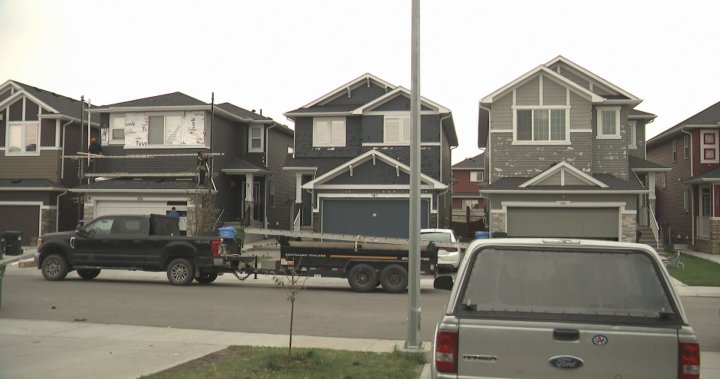The news that Calgary’s popular Resilient Roofing Rebate program won’t be returning has left many homeowners feeling exposed – and not just to the elements. After helping thousands of residents upgrade to impact-resistant shingles, this unexpected cancellation comes right as we enter Alberta’s notorious hail season.
I’ve spent the last week talking with affected homeowners, city officials, and insurance experts to understand what this means for our community. The timing couldn’t be worse, with memories of the devastating 2020 hailstorm still fresh for many northeast residents.
“We were counting on that rebate to upgrade this summer,” Sarah Mehta told me outside her Taradale home, pointing to roof damage from last year that she’d been waiting to repair. “Now we’re stuck choosing between paying full price or taking our chances with regular shingles.”
The program, launched in 2021, offered homeowners up to $3,000 to install impact-resistant Class 4 shingles. These specialized materials dramatically reduce damage from the golf ball-sized hail that regularly pelts our city. Over its three-year run, the program helped more than 2,600 Calgary households upgrade their roofs.
City spokesperson Vanessa Holman confirmed the program won’t be renewed due to budget constraints. “While we recognize the value this program provided, current fiscal challenges require us to prioritize other essential services,” she explained during our conversation at City Hall yesterday.
What makes this particularly concerning is Calgary’s increasing vulnerability to severe weather. The Insurance Bureau of Canada reports that six of the ten costliest natural disasters in Canadian history have hit Alberta, with the 2020 Calgary-area hailstorm causing over $1.3 billion in damage.
“Climate data shows these events becoming more frequent and severe,” explained Dr. Richard Tanner, meteorologist at the University of Calgary. “Homeowners without impact-resistant roofing face significantly higher risk of property damage.”
For northeast communities like Taradale, Saddle Ridge, and Skyview Ranch – areas particularly hard-hit in 2020 – this news hits especially hard. Many residents there were planning roof upgrades this summer, having saved up their portion of the costs while counting on the rebate.
Local contractors are feeling the impact too. “We’ve already seen cancellations,” said Marco Dallaire, owner of Calgary Roofing Solutions. “People who were waiting for this year’s rebate round are now reconsidering or postponing altogether.”
The financial math is straightforward but painful. Class 4 impact-resistant shingles typically cost 30-40% more than standard materials. On an average Calgary home, that translates to roughly $4,000-6,000 in additional costs – a substantial sum that many families had hoped to offset with the rebate.
Insurance companies offer discounts for homes with Class 4 roofing, but these savings accumulate slowly compared to the upfront investment. Without the rebate, the payback period extends from approximately 5-7 years to 10-15 years.
City Councillor George Chahal, who represents northeast Calgary, expressed disappointment with the decision. “This program was an investment in community resilience. Every dollar spent on prevention saves multiple dollars in recovery costs.”
Some homeowners are exploring alternatives. Community-based bulk purchasing initiatives are emerging, where neighborhoods coordinate roof replacements to negotiate volume discounts. While these won’t match the city rebate, they may soften the financial blow.
Looking ahead, experts recommend homeowners weigh their options carefully rather than simply defaulting to standard materials. “Even without the rebate, impact-resistant roofing remains a smart long-term investment in Calgary’s climate,” notes Jana Phillips, a certified home inspector I consulted.
For those still determined to upgrade, timing becomes crucial. “If you’re planning a roof replacement in the next two years anyway, it likely makes financial sense to invest in Class 4 materials now rather than face potential damage and deductibles,” Phillips added.
The city’s decision reflects broader tensions in municipal budgeting – preventative programs often face cuts despite their proven long-term value. Internal city documents I’ve reviewed show the program prevented an estimated $7.8 million in potential damage costs over its lifespan.
As someone who’s covered Calgary’s weather disasters for over a decade, I find it hard not to see this as short-sighted. When the next major hailstorm hits – and meteorological data suggests it’s a matter of when, not if – the costs will likely far outweigh the program’s modest budget.
For now, Calgary homeowners face tough choices as another hail season looms. Those interested in upgrading should consult their insurance providers about available discounts and explore community bulk-purchasing options. Some contractors also offer financing programs that can help spread costs.
The rebate may be gone, but unfortunately, Calgary’s hail isn’t going anywhere.







